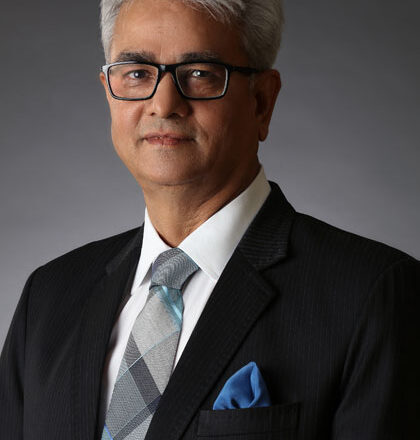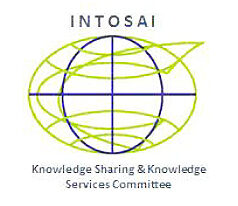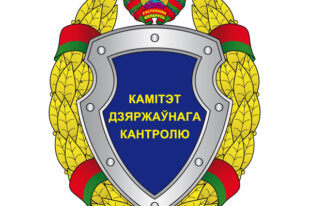Knowledge Development, Sharing: Keys to Success

by Mr. Shashi Kant Sharma, Comptroller and Auditor General of India and Chair of the INTOSAI Knowledge Sharing and Knowledge Services Committee
The International Organization of Supreme Audit Institutions (INTOSAI) value chain consists of knowledge development and standards setting; capacity development; knowledge sharing; and assessment and feedback. The Knowledge Sharing Committee (KSC) plays a key role in the value chain by contributing to knowledge development and knowledge sharing components.
While the Professional Standards Committee (PSC) and its sub-committees contribute to knowledge development by preparing standards on the three main streams of audit, the KSC working groups and task forces contribute by developing subject matter specific guidance for the INTOSAI Framework for Professional Pronouncements (IFPP). For instance, six new and four revised pronouncements prepared by KSC working groups were adopted at INCOSAI 2016 as part of the then ISSAI framework.
The KSC and its working groups facilitate knowledge sharing through the exchange of Supreme Audit Institution (SAI) experiences at annual meetings; organizing seminars and symposiums on select topics; publishing newsletters and journals; maintaining a compendium of SAI audit reports; and via the INTOSAI Community Portal.
As Chair of the KSC, I am privileged to share with you some key initiatives with which the KSC has been involved in the last three years:
- In cooperation with the INTOSAI Development Initiative (IDI), the KSC developed the INTOSAI Community Portal as a tool for knowledge sharing in 2015. The Portal has several attractive features, including Communities of Practice, blogs, library, polls, surveys, gallery and news. As a part of continuous improvement, we have started the process to revamp the portal by making it available in all official INTOSAI languages, improving its portability and providing for online chats. The transformed portal is expected to be ready by the end of the year, and our aspiration is to make it a single window of access for all knowledge related services.
- The KSC has been identified in the INTOSAI Strategic Plan 2017-22 as the hub for INTOSAI’s efforts to share knowledge regarding SAI support and contributions to Sustainable Development Goal (SDG) follow-up and review. Acknowledging this recognition, the KSC has collaborated with the IDI and launched a comprehensive capacity development program on “Auditing the Implementation of SDGs.” The program’s key component—the cooperative audit program to audit SDG implementation preparedness—is underway. Once the cooperative audit program is completed, lessons learned and a collection of audit findings will be prepared by 2019.
- Appreciating the radical changes that Big Data might usher in the functioning of SAIs, a new Working Group on Big Data under the KSC was approved at INCOSAI 2016, the event which also marked the reconstitution of the Task Force on Procurement Contract Audit into the Working Group on Public Procurement Audit. As a result, the KSC now has 11 working groups dealing with various specialized areas of audit relating to corruption, environment, extractive industries, information technology, public debt, procurement, etc.
- The need for research issues that cut across working groups has been acknowledged, and in response to a survey carried out by the KSC in 2015-16, 70 percent of the SAIs welcomed crosscutting research and suggested many topics. The KSC has constituted two research project teams on “Auditing Emergency Preparedness” and “Citizen Participation in Public Audit.”
- A development that has given me immense satisfaction is the evolution of mechanisms for healthy collaboration with the PSC and the Capacity Building Committee (CBC). The cooperation between the three Goal Chairs has grown in strength in the last two years and has yielded several positive outcomes—the creation of the Forum for INTOSAI Professional Pronouncements (FIPP); drafting of quality assurance for INTOSAI Public Goods that are developed outside Due Process; development of a dashboard for monitoring and uniform reporting by the three Goal Chairs; and identification of strategies for implementing the IFPP Strategic Development Plan (SDP).
I envisage the following few challenges in our objective of ensuring effective knowledge creation and sharing:
- The Revised Due Process requires the participation of a FIPP liaison in project teams constituted to develop and revise the IFPP. This requirement naturally places a restriction on the number of projects in which the FIPP can participate. On the other hand, the KSC working groups aspire to develop several new documents for the IFPP. It is essential to strike a fine balance between the working groups’ aspirations and the FIPP’s ability to allocate resources for participating in such projects.
- The draft paper on quality assurance of INTOSAI Public Goods places onus on the Goal Chairs to sign a statement of quality assurance for products developed by the sub-committees and Working Groups. I believe there is a need to develop a robust mechanism by which the Goal Chairs can draw assurance on the quality of products.
- Maintenance of the revamped community portal, which is expected to be dynamic and in multiple languages, will require support of regions and SAIs. I also envision a need to reduce the number of websites maintained by various INTOSAI organs to avoid duplication and diffusion of patronage.
Given our successful engagements with stakeholders in the last few years, I am confident that these challenges can be easily addressed through dialogue and cooperation with various stakeholders. As the KSC continues to strive towards knowledge development on emerging issues and on sharing knowledge and experiences of SAIs for the mutual benefit of all, I invite the SAIs to join the Working Groups of KSC and patronize the Community Portal.





